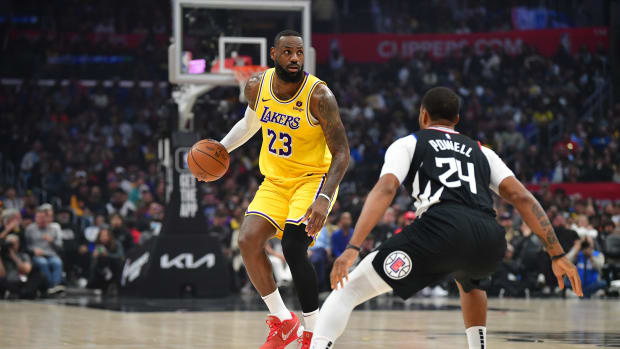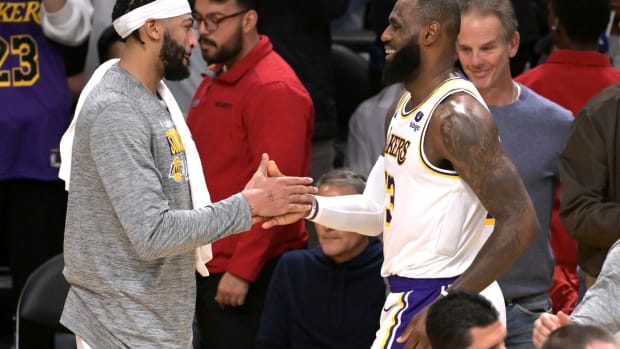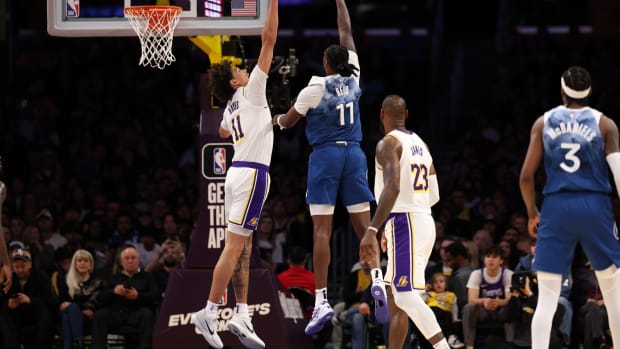Lakers News: NBA's New Bench Celebration Rule Enforced?
On Wednesday night, in the Lakers' 119-115 overtime loss to the Phoenix Suns at Las Vegas venue T-Mobile Arena, then-reserve center Thomas Bryant was assessed a technical for stepping onto the hardwood to hype up a Damian Jones dunk. A lot of fans may have been wondering why the 6'10" big man was penalized so harshly.
It turns out that the NBA has instituted a new "bench celebration encroachment" rule in an effort to cut back on behavior that sees players beyond the 10 men on the court making their way into the game, however innocuously.
Following this two-handed Jones dunk, which capitalized on an inattentive (or disengaged) DeAndre Ayton not sliding over to protect the rim, Bryant can be seen clapping and pumping his fists as he takes maybe one or two steps onto the baseline.
The league cooked up this new punishment to address disruptive instances in the recent past, wherein players on the sidelines would stand for lengthy periods, leave their bench areas and enter the court even though they weren't playing (which is what Bryant was punished for), or standing behind players as they launched triples, reports Sean Keane of YardBarker.
It's a bit of a bummer that an emphatic celebration directly following an impressive on-court performance is being policed quite this harshly, though it makes sense that the league doesn't want players who are technically not in the game disrupting play from their sidelines perches. Bryant was merely hyping up his teammate, he wasn't trying to pester the Phoenix Suns.
The penalty, also referred to as the "Theo Pinson Rule," stems from the deliberately disruptive behavior of the Dallas Mavericks swingman during his team's Western Conference Finals series against the Warriors who frequently found his way onto the court while he was benched, stood for extended periods, and (kind of hilariously) wore Golden State's team colors so that he could ask for the ball from the opposition, thus yielding turnovers.
Were Bryant doing something like this, it would make sense to whistle him for it. But leaping out of his seat and clapping excitedly hardly feels deserving of a punishment in the way that, say, forcing turnovers from the sidelines does.






